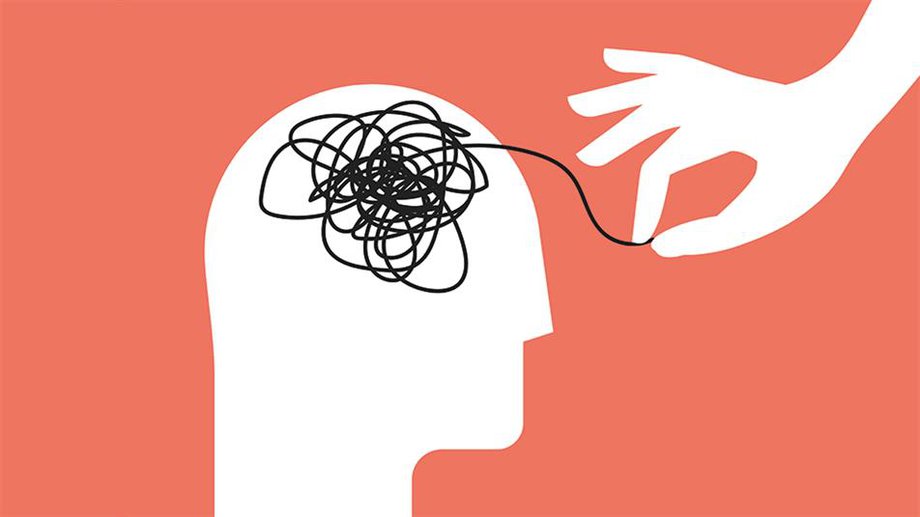What Is the Impact of Chronic Pain on Mental Health?

Chronic pain is a pervasive health issue that affects a significant portion of the population. Its impact on mental health has garnered substantial attention in recent years.
This article aims to explore the relationship between chronic pain and various mental health outcomes, including depression, anxiety, sleep disturbances, substance abuse disorders, suicidal ideation, and social isolation.
By examining the available research and evidence, this article seeks to provide a comprehensive understanding of the profound impact chronic pain can have on mental well-being.
Effective strategies for managing mental health in chronic pain patients will also be discussed.
Key Takeaways
- Chronic pain is highly prevalent among individuals with mental health disorders, and it increases the risk of developing conditions such as depression, anxiety, and substance use disorders.
- The relationship between chronic pain and mental health is bidirectional, as mental health disorders can worsen pain symptoms and decrease treatment adherence.
- Chronic pain negatively affects cognitive function, including memory and decision-making, and is strongly associated with depression. Mind-body techniques like mindfulness meditation can help manage chronic pain and reduce depressive symptoms.
- Anxiety is significantly correlated with chronic pain, and it can exacerbate pain perception and interfere with overall well-being. Cognitive-behavioral therapy, relaxation techniques, and mindfulness-based interventions can help manage anxiety and promote a sense of control over pain.
The Prevalence of Mental Health Disorders in Chronic Pain Patients
The prevalence of mental health disorders in chronic pain patients has been extensively studied in various research studies. Understanding the impact of chronic pain on mental health is crucial for developing appropriate treatment options.
Research indicates that individuals with chronic pain are at a higher risk of developing mental health disorders such as depression, anxiety, and substance use disorders. The relationship between chronic pain and mental health is complex and bidirectional. Chronic pain can lead to the development of mental health disorders, and vice versa.
The impact of mental health disorders on chronic pain management is significant, as it can worsen pain symptoms, decrease treatment adherence, and impair overall functioning. Consequently, it is essential to incorporate mental health screening and interventions as part of the comprehensive treatment approach for chronic pain patients.
Understanding the Relationship Between Chronic Pain and Depression
Understanding the relationship between chronic pain and depression requires a comprehensive examination of the existing literature and empirical evidence. Chronic pain is a complex condition that can have a significant impact on mental health, particularly in relation to depression. Here are four key points to consider:
- Chronic pain and cognitive function: Research has shown that chronic pain can negatively affect cognitive function, leading to difficulties with memory, attention, and decision-making.
- Depression and chronic pain: There is a strong association between chronic pain and depression, with individuals experiencing chronic pain being more likely to develop depressive symptoms. This relationship is bidirectional, with depression also contributing to the perception and experience of chronic pain.
- Managing chronic pain: Mind-body techniques, such as mindfulness meditation and relaxation exercises, have been found to be effective in managing chronic pain and reducing depressive symptoms.
- The need for a multidisciplinary approach: Treating the coexistence of chronic pain and depression requires a multidisciplinary approach that combines medical interventions, psychological therapies, and lifestyle modifications.
Overall, understanding the impact of chronic pain on mental health, particularly in relation to depression, is crucial in order to develop effective interventions and improve the well-being of individuals experiencing chronic pain.
Anxiety and Its Correlation With Chronic Pain
Anxiety has been found to be significantly correlated with the experience of long-term pain, indicating a potential relationship between these two conditions. Individuals who suffer from chronic pain often experience heightened levels of anxiety due to the distress caused by their physical symptoms. The presence of anxiety can exacerbate pain perception and interfere with the overall well-being of individuals.
Consequently, effective anxiety management and coping strategies are essential for individuals dealing with chronic pain. Research suggests that various approaches can help individuals manage their anxiety, such as cognitive-behavioral therapy, relaxation techniques, and mindfulness-based interventions. These strategies aim to enhance individuals’ ability to regulate their emotions, reframe negative thoughts, and promote a sense of control over their pain.
The Impact of Chronic Pain on Sleep and Mental Well-being
This discussion examines the relationship between chronic pain and sleep disturbances, as well as the subsequent mental health consequences.
Sleep disturbances are a common occurrence in individuals with chronic pain, affecting their overall well-being and quality of life.
Strategies for managing these sleep disturbances and mitigating the mental health consequences are also explored.
Sleep Disturbances and Pain
Sleep disturbances are commonly experienced by individuals with chronic pain, impacting both the quality and quantity of their sleep. The relationship between chronic pain and sleep is bidirectional, with pain causing sleep disturbances and poor sleep quality exacerbating pain symptoms. In addition to reducing sleep quality, chronic pain can also lead to cognitive impairments. Individuals with chronic pain often report difficulties with attention, concentration, and memory, which can further impact their daily functioning and overall well-being. These cognitive impairments may be attributed to the constant pain experienced by individuals, as well as the disruption in sleep patterns. The table below summarizes the impact of chronic pain on sleep quality and cognitive functioning:
| Sleep Quality | Cognitive Functioning | |
|---|---|---|
| Chronic Pain | Reduced quality and quantity of sleep | Impaired attention, concentration, and memory |
| Poor Sleep | Increased pain symptoms | Further cognitive impairments |
Overall, the relationship between chronic pain, sleep disturbances, and cognitive functioning is complex and interconnected, highlighting the importance of addressing sleep disruptions in individuals with chronic pain to improve their overall mental health and well-being.
Mental Health Consequences
The relationship between chronic pain and mental health consequences is well-documented in the literature. Individuals experiencing chronic pain often face significant challenges that extend beyond physical discomfort, impacting their overall well-being.
The constant presence of pain can lead to a range of mental health issues, including depression, anxiety, and decreased quality of life. Research suggests that chronic pain can exacerbate preexisting mental health conditions or even contribute to their development.
The experience of chronic pain may disrupt daily activities, limit social interactions, and reduce overall life satisfaction. Additionally, the emotional distress caused by chronic pain can further compound mental health issues, leading to a vicious cycle of pain and psychological distress.
Understanding and addressing the mental health consequences of chronic pain is crucial for promoting the overall well-being of individuals living with this condition.
Strategies for Managing
Implementation of various coping strategies can be helpful in managing the challenges associated with chronic pain and promoting overall well-being.
Two commonly used strategies are cognitive therapy and mindfulness meditation. Cognitive therapy focuses on identifying and changing negative thought patterns commonly associated with chronic pain, such as catastrophizing or overgeneralizing. By challenging and replacing these thoughts with more realistic and positive ones, individuals can improve their emotional well-being and reduce the impact of pain on their daily lives.
Mindfulness meditation, on the other hand, involves paying attention to the present moment without judgment. This practice can help individuals develop a greater awareness and acceptance of their pain, reducing their emotional reactivity and promoting a sense of calm and well-being.
Both cognitive therapy and mindfulness meditation have been shown to be effective in reducing pain intensity, improving functioning, and enhancing overall quality of life for individuals with chronic pain.
Chronic Pain and the Risk of Developing Substance Abuse Disorders
Chronic pain has been found to increase the likelihood of developing substance abuse disorders. Individuals experiencing chronic pain often encounter significant challenges in managing their pain, which can lead to the use of substances as a means of coping. Understanding the impact of chronic pain on substance abuse is crucial for substance abuse prevention and the development of effective coping strategies.
Some key points to consider include:
- Substance abuse prevention:
- Providing education and awareness about the risks of substance abuse for individuals with chronic pain.
- Encouraging the use of non-pharmacological approaches to pain management, such as physical therapy and cognitive-behavioral therapy.
- Coping strategies:
- Teaching individuals with chronic pain healthy coping mechanisms, such as relaxation techniques and mindfulness.
- Promoting social support networks and the importance of seeking help from healthcare professionals.
Exploring the Link Between Chronic Pain and Suicidal Ideation
The relationship between chronic pain and suicidal ideation has been a topic of interest in the field of mental health research. Studies have shown that individuals experiencing chronic pain are at a higher risk of developing suicidal thoughts or engaging in suicidal behaviors.
Understanding the link between pain and suicidal ideation is crucial in order to develop effective interventions and support systems to address the mental health consequences of chronic pain.
Pain and Suicidal Ideation
Pain severity has been found to be positively associated with suicidal ideation in individuals with chronic pain. The impact of chronic pain on mental health is complex and multifaceted. Understanding the link between pain and suicidal ideation is crucial for developing effective interventions and support systems for individuals with chronic pain.
- Pain management:
- Pharmacological interventions (e.g., analgesic medications)
- Non-pharmacological interventions (e.g., physical therapy, acupuncture)
- Coping strategies:
- Cognitive-behavioral therapy (CBT)
- Mindfulness-based interventions
Addressing pain management is essential to alleviate pain severity and potentially reduce the risk of suicidal ideation. Pharmacological interventions, such as analgesic medications, can help manage pain symptoms. Non-pharmacological interventions, such as physical therapy and acupuncture, may also provide relief.
Moreover, implementing coping strategies like CBT and mindfulness-based interventions can assist individuals in developing adaptive ways to deal with pain and improve their overall mental well-being.
Mental Health Consequences
Mental health consequences related to individuals experiencing chronic pain are multifaceted and require a comprehensive understanding of the underlying factors.
One significant mental health consequence is the prevalence of anxiety. Anxiety disorders are more commonly found in individuals with chronic pain compared to the general population. The constant pain and uncertainty about the future can lead to heightened levels of anxiety and worry. This can further exacerbate the individual’s pain experience and negatively impact their overall well-being.
Moreover, chronic pain has a substantial impact on daily activities. Individuals may find it challenging to engage in routine tasks, such as work or household chores, due to the limitations imposed by their pain. This can result in decreased productivity, increased dependence on others, and feelings of frustration and helplessness.
Understanding the prevalence of anxiety and the impact on daily activities is crucial in addressing the mental health consequences of chronic pain.
Social Isolation and Psychological Distress in Individuals With Chronic Pain
Social isolation and psychological distress have been identified as common experiences in individuals with chronic pain. The impact of chronic pain on mental health is multifaceted, with social support and coping mechanisms playing a crucial role.
Social isolation is often a consequence of chronic pain, as individuals may withdraw from social activities due to physical limitations or fear of exacerbating their pain. This isolation can lead to feelings of loneliness, depression, and anxiety. Furthermore, the constant presence of pain can result in psychological distress, including feelings of helplessness and frustration.
However, social support and effective coping mechanisms can mitigate the negative psychological effects of chronic pain. Social support from friends, family, and healthcare professionals can provide emotional and practical assistance, reducing feelings of isolation and distress. Coping mechanisms such as relaxation techniques, cognitive-behavioral therapy, and mindfulness-based interventions can also enhance individuals’ ability to manage their pain and improve their overall mental well-being.
Strategies for Managing Mental Health in Chronic Pain Patients
Strategies for managing the mental well-being of individuals with chronic pain involve a combination of psychological interventions and support systems. These strategies aim to alleviate the psychological distress associated with chronic pain and improve overall quality of life. Some effective strategies include:
- Cognitive therapy: This therapeutic approach focuses on identifying and challenging negative thoughts and beliefs about pain, helping individuals develop more adaptive coping strategies.
- Mindfulness techniques: Mindfulness-based interventions, such as mindfulness-based stress reduction (MBSR), teach individuals to cultivate non-judgmental awareness of their pain and develop acceptance skills. This can lead to reduced distress and improved pain management.
- Support systems: Establishing a supportive network of family, friends, and healthcare professionals can provide emotional support, practical assistance, and resources for managing chronic pain.
Frequently Asked Questions
What Are the Most Common Mental Health Disorders That Are Prevalent in Chronic Pain Patients?
Mood disorders, such as depression, are prevalent among chronic pain patients. These mental health disorders commonly coexist with chronic pain, indicating a significant impact on the psychological well-being of individuals experiencing chronic pain.
How Does Chronic Pain Contribute to the Development of Anxiety?
Chronic pain has been found to contribute to the development of anxiety, specifically panic attacks, and depression. Research suggests that the persistent and debilitating nature of chronic pain can lead to increased psychological distress and a higher risk of mental health disorders.
Is There a Connection Between Chronic Pain and Sleep Disturbances?
The connection between chronic pain and sleep disturbances has been extensively studied in the context of chronic pain management and its impact on daily functioning, shedding light on the complex interplay between these two factors.
Are Individuals With Chronic Pain More Susceptible to Developing Substance Abuse Disorders?
The prevalence rates of substance abuse disorders among individuals with chronic pain have been investigated. Studies have shown a potential connection between chronic pain and increased susceptibility to developing substance abuse disorders.
What Strategies Can Be Implemented to Manage Mental Health in Patients With Chronic Pain?
Psychological interventions and self-care techniques can be implemented to manage mental health in patients with chronic pain. These strategies aim to address the psychological impact of chronic pain and improve overall well-being.









